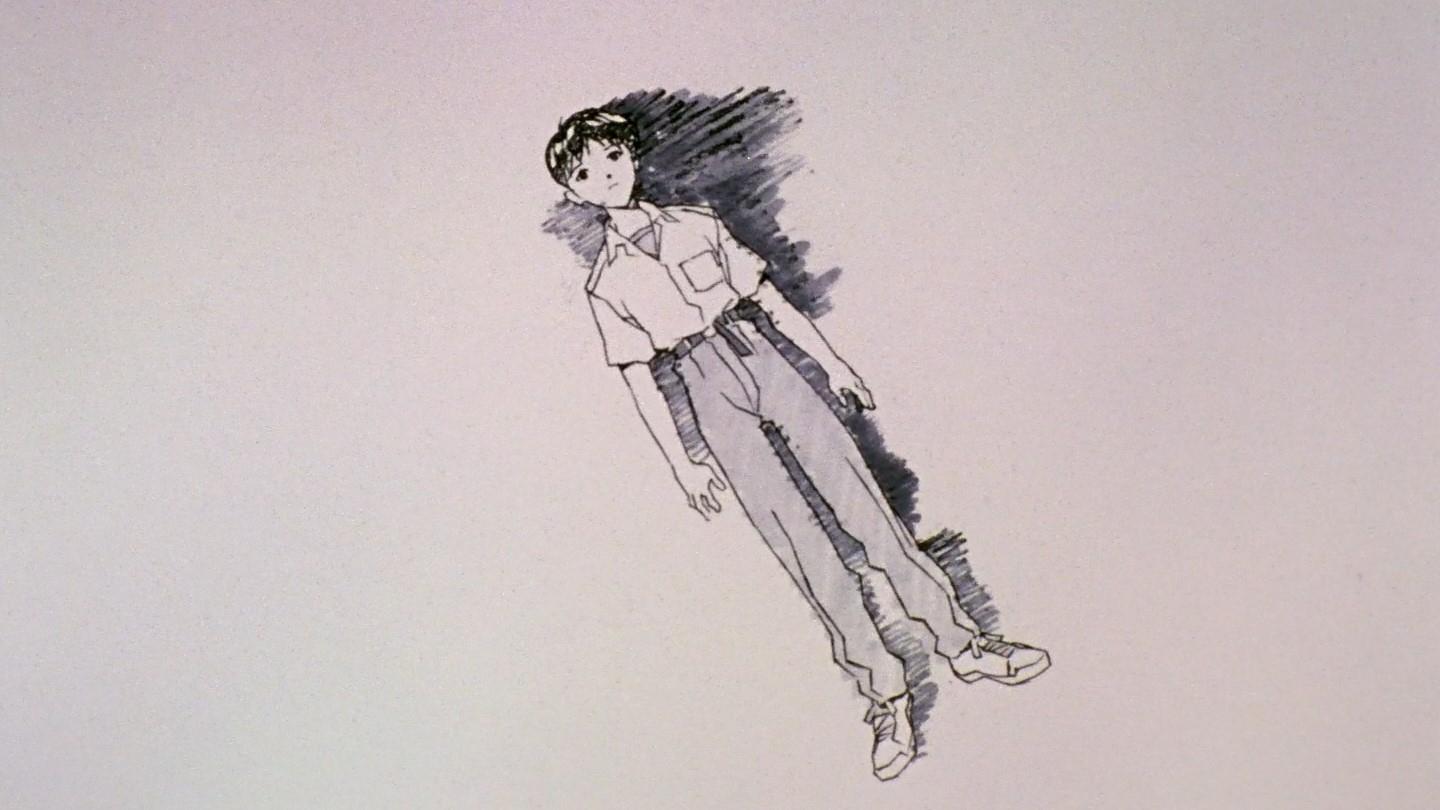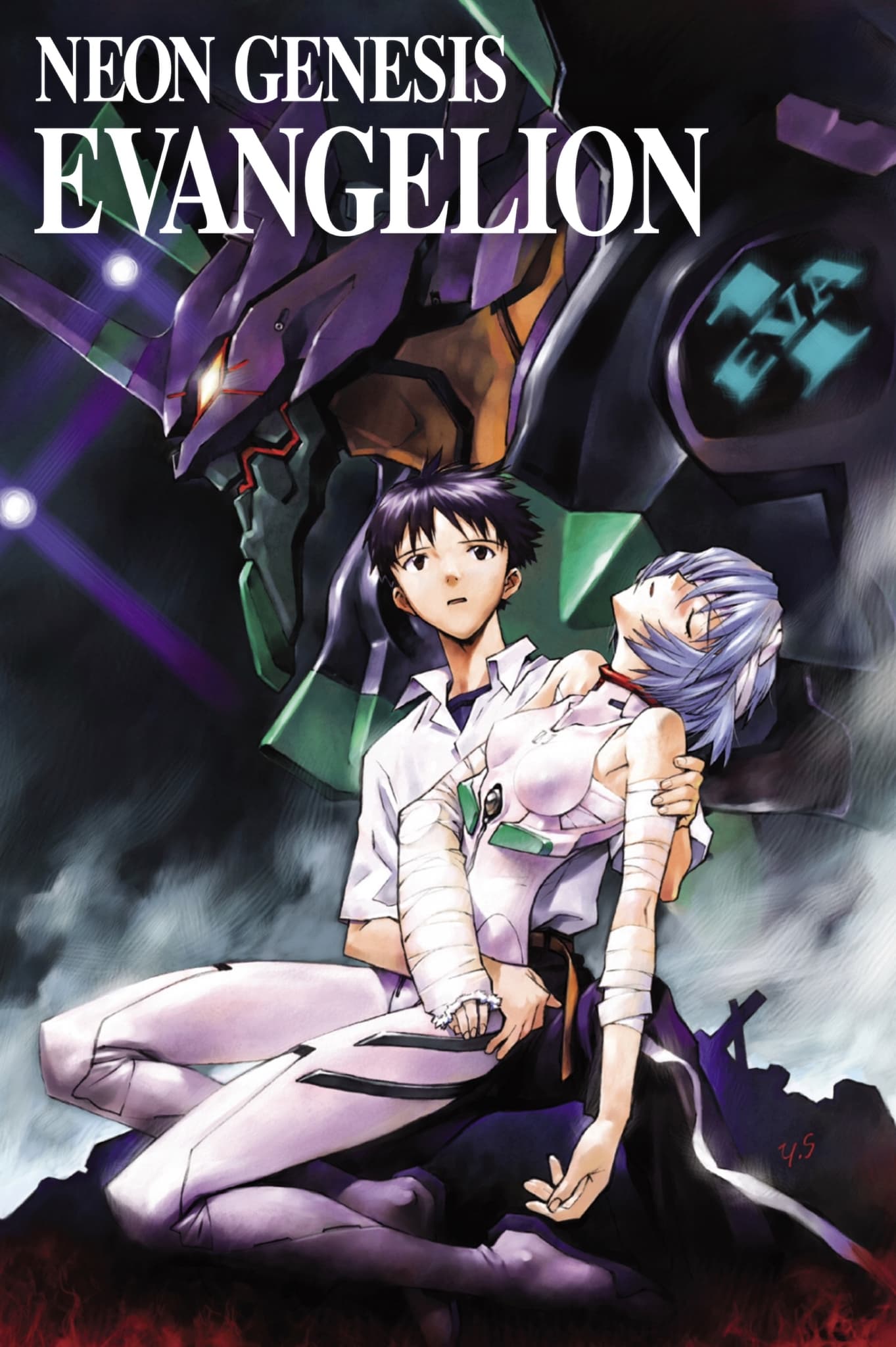
Neon Genesis Evangelion (1995)
Neon Genesis Evangelion (1995)
This episode opens with Shinji stating his fear of being alone and all the other characters explaining their empty hearts and how everyone is fundamentally alone. If episode 25 is about each individual person realizing their fears then episode 26 is about everyone realizing they are the same.
The characters again and again question their loneliness and fear of being hurt. Shinji wonders if it’s okay to be running away even though he knows he doesn’t want to. The episode cuts to some live action photographs as Shinji continues to rationalize his self induced reasons for his depression. Even when others insist he has worth he shuts that down. Instead Shinji states that it’s only the Eva that gives him his value.
Shinji attaches all of his self worth to external things but specifically the Eva. He purposefully imagines that people hate him but most of all insists he hates himself most of all. Perhaps if he pilots the eva he can have worth. But basing your worth off of just one thing along isn’t enough. It can’t be the eva. It can’t be the cello. You are not defined by one thing alone.
The characters ponder their world. Shinji and Asuka and Rei both fear rejection and anxiety. They both want love, contact, acceptance, and family. This is what makes them fundamentally human: their desires. Every human being inherently desires value to continue living. But one can’t have value without validating their own existence.
However boundaries exist for a reason. All elements of one’s existence help define one’s own consciousness and perception of self. Shinji is berated by asuka and mistao and told that it is only he who can understand himself .
Shinji is placed in a blank world of freedom: the world he desired. He has no bounds in an empty world. He must visualize a boundary to validate his freedom of existence via shapes like a ground to walk on. If he has the freedom to visualize the world he has the freedom to visualize himself. In a sense of Lacanian inspired pscycho-analysis Shinji realizes he can only perceive his “self” if he can perceive the shape of “others” that gives him his inherent value. Our shapes cannot exist without the shapes of others.
Upon realizing This the show places itself into inter-textual meta commentary. Shinji is placed in a world of total happiness. He has parents and goes to school without piloting the Eva’s. In many ways this resembles the earlier comedy vibe of the show and critiques itself. When Shinji runs into rei and accidentally peeks her panties and comes back to school with Toji and Kenske cracking jokes we can literally see the show making fun of its own sexualization earlier in the series. Episode 26 is the author gaining self awareness. The author is made to be Shinji but so is the audience. Here, This is a perfect world of fantasy that Shinji may desire. But it isn’t the real world. If Shinji wanted to achieve even anything close he would have too learn to love himself.
When placed outside of this “possible world” Shinji realizes he can exist in a world without being an eva pilot. He can be happy if only momentarily. At first Shinji attempts to continue believing in his characters “lie”. But the truth is there. Shinji is told by the people he’s met and lived with that if he subjects his reality to a subjectivity of negativity then he will be unable to live with any positivity. If fun things can still happen on rainy days then anything positive can continue to happen. You don’t have to worry about what others think of all the time if the world that you create is only the world inside of your head.
“I hate who I am. But maybe I can learn to like myself one day! Maybe it’s okay for me to be here! Right…the only person I can be is me. It’s me. I want to be myself! I want to be here! It’s okay for me to be here!”
Once Shinji has finally deconstructed himself and learned to love himself he can finally live.
When I was 14 and depressed and had already moved multiple times and for the first time watched neon Genesis Evangelion I thought that the ending was too cheerfully optimistic and existed too much in a vacuum despite relating to the protagonist to an uncomfortable amount. (While it does exist in a vacuum end of Evangelion improves this.). I thought it was too self serious while still being corny and pretentious. It took me an even longer time to realize that being genuine was the only thing that mattered. What makes The original ending of Neon Genesis Evangelion so good is how it chooses to be genuine and sincere. You can’t be pretentious. It’s choice to use Freud’s theories of psycho sexual analysis mixed with Jung’s theories of consciousness and ego to deconstruct the human condition alongside Lacan’s theories of self is nothing short of extraordinary . Yes it takes itself way too seriously with way too much philosophy. But it’s also one of if not the most genuine depiction of the human condition out there and it really couldn’t be done without its reliance on the absurdism that the science fiction genre allows writers to operate in. Essentially, learn to love yourself.
“Congratulations!”
Loading




